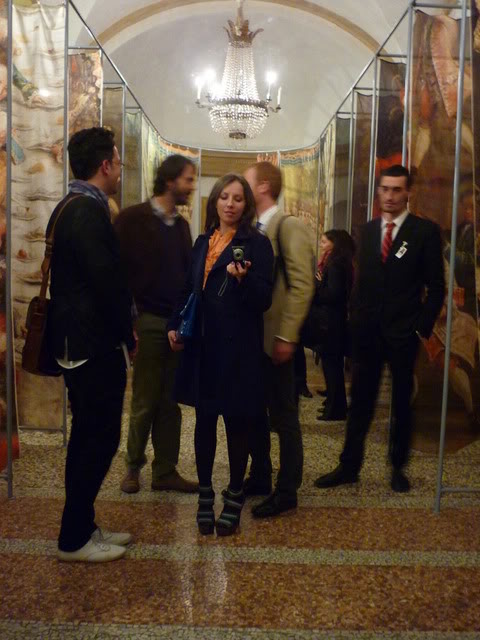
Read an interesting little pop-sci piece this morning on new research in language and the brain. The general swing of the thing was that the more we learn about the brain, the more a strict adherence to localisation of function looks obsolete. I was reading about the argument posited by Friedemann Pulvermuller at Cambridge that certain functions - in this instance language processing - are far more complex and that simply reducing responsibility to the infamous Broca and Wernicke areas provides an incomplete picture. Indeed, Pulvermuller suggests that around two thirds of the brain is involved in language processing. The idea of language being a whole brain experience means that we also understand language in a sensory capacity: when we think of words that have to do with the mouth - licking or eating or kissing - we're also activating areas of our brain that are involved with controlling our mouths, not just our language. Reading the following sentence stopped me in my tracks: we don't just understand words, we feel them. It's so obvious, of course, but having such a clear-cut explanation connects all the dots. Feeling words, not just understanding them - I think this has long been the assumption underpinning my entire view of aesthetics - but I'm not sure whether I consciously realised it until this morning.
What I actually wanted to write about - The ROH production of The Rake's Progress I saw on Wednesday evening - ties perfectly into this idea of feeling words, not just understanding them. I love most genres of music and I especially love going to see live music, but there are few musical experiences where I actually feel moved by the words, moved by the music, as I do with opera. It's not a given and nothing that you can take for granted - not all operas have this unique power though, or at least not for me - but I always find it amusing when my friends say they don't like opera. It's like saying you don't like music, for there are as many different kinds of opera as there are other kinds of music.
I'm still finding out what I like in opera. I love Mozart and Handel, of course, though I'm not such a big fan of the bel canto composers and I didn't really think I was into the German composers, but both Bellini's I Capuleti e i Montecchi and Wagner's Der fliegende Hollander rocked my world last year, hence the still figuring it out. My general attitude, though, is to see everything that comes to town, so off I went to The Rake's Progress, mind open.
I won't say that I don't like Stravinsky, but the score was far from music to my ears. And a libretto written by Auden?! While I've written before about how I feel Auden lacks aurality - after my early-morning reading maybe what I really meant is that his words don't make me feel the way I want poetry to make me feel. Auden's words are just words: sometimes they're words that make me laugh or words that make me think, but they are rarely words that move me. Auden's lack of power combined with Stravinsky's 'difficult' music results in exactly the sort of thing I don't want from an opera. Having said that, I can see why Stravinsky and Auden work well together - if you're into that whole atonal, unresolved, jarring sort of modernist music. Personally, I'm not. At least not at the opera, when it's not what I expect - don't get me wrong, though: a bit of well-timed Steve Reich is glorious stuff.
Maybe the performance could have been rescued by a super-human cast, but I thought - apart from Kyle Ketelsen's lovely baritone Nick Shadow - that everyone was horrendously weak. I was surprised that these people were singing on stage at the ROH - no dynamism, no power, poor projection - ouch. That said, the staging was witty and the production was surprisingly funny, but whether this is the right attitude or not, I go to the opera to be moved, to experience those sublime overwhelming sensations that only come from this bizarre combination of human voice and orchestral accompaniment, and for me the music should come first. Unfortunately, visual trickery can disguise neither shoddy performances nor a general lack of feeling.




No comments:
Post a Comment